
“This trip has brought to life what we read about all year” – Accompanying our Master’s students on fieldwork to Uganda
Judith Krauss, Lecturer in Environment, Climate Change and Development, Global Development Institute, and Mario Hernández Trejo, PhD researcher and teaching assistant in Geography
A ten-day field course to Uganda is a staple of various Master’s pathways in International Development at the Global Development Institute. Five years from now, students will remember two things: their dissertation, and the time in Uganda. After all the hours spent in the University Library, in fierce tutorial debates, and lecture halls in rainy Manchester, the time in Uganda brings, as one student put it, everything to life. For us as teaching staff, it was a privilege to accompany our students on fieldwork and watch an incredibly steep learning curve every day.
It was the consensus on our pathway ‘Environment, Climate Change and Development’ that our programme, led by the great Yvonne from the equally great Venture Uganda, was the best among all pathways. It was a privilege spending time with the Uganda Wildlife Education Centre in Entebbe, Hoima District Farmers‘ Association, the Chimp Trust in Hoima and the schools and women’s group with whom they work as well as the Bulindi Chimpanzee & Community Project, Uganda Wildlife Authority in Murchison Falls National Park, Masindi and Kampala, the community organisation leading Kigaju Forest Camp, the Kituuka community, Wildlife Conservation Society, the Climate Change Unit in the Ministry of Water and the Environment, and the Climate Champions initiative including Jorumat Agro-investments and St. Jude Family Projects. This blog is a partial attempt to appreciate their time, expertise and openness, while also feeding back some of our learning to those who so generously shared their viewpoints with us. read more…

Booking now open: Development Studies Association conference 27-29th June 2018
Academics from the Global Development Institute are convening a number of panels and giving a lot of papers at the annual Development Studies Association conference taking place 27-29th June at The University of Manchester. This year’s theme will be Global Inequalities and will challenge the traditional geographies of development, and demand investigation of the power relations that generate wealth and poverty within and between countries and regions. Conference panels will also emphasise the many dimensions of inequality, including gender, class, climate, race and ethnicity, region, nationality, citizenship status, age, (dis)ability, sexuality, and religion and the ways these reinforce or counteract each other. To see all the panels and papers visit DSA website.
Below is the full list of panels and papers being delivered by researchers from The University of Manchester. For full details of each session, click on the title. read more…
Rana Plaza: Five years on
Four years ago, our institute marked the first anniversary of the Rana Plaza collapse which claimed more than 1,100 lives. Professor Stephanie Barrientos from the Global Development Institute and Rosey Hurst (the founder and director of Impactt which works with organisations to improve working conditions in their supply chain) asked whether the world has since changed for garment workers in Bangladesh.

Disability, poverty, and technology in Uganda
Dr Gindo Tampubolon, Lecturer in Poverty, Global Development Institute
Developing countries are often marked by spatial disparity with the centre hoarding political influence, wealth and services. Increasingly they are also marred by neglect of disability with very little known about its distribution and consequences. Here new evidence on spatial disparity in disability and poverty is shown using the new Uganda Demographic & Health Survey 2016 released early this year.
The survey collected information on six domains of disability following the UN recommended instruments, the Washington Group measure of disability. The six domains are hearing, seeing, walking or climbing steps, remembering or concentrating, self-caring, and communicating. In each domain people reported whether they faced no difficulty, some difficulty, a lot of difficulty or completely unable to perform it. I summarise the report of 46,034 Ugandans aged 15 and older on a map. The map showed the South Central region (encircling Kampala) has a low percentage of people with some disability as rendered with a lighter shade of green whereas Kigezi in the far south west is home to the highest percentage of people reporting some disability. Disability like any other disadvantages has a spatial character. read more…
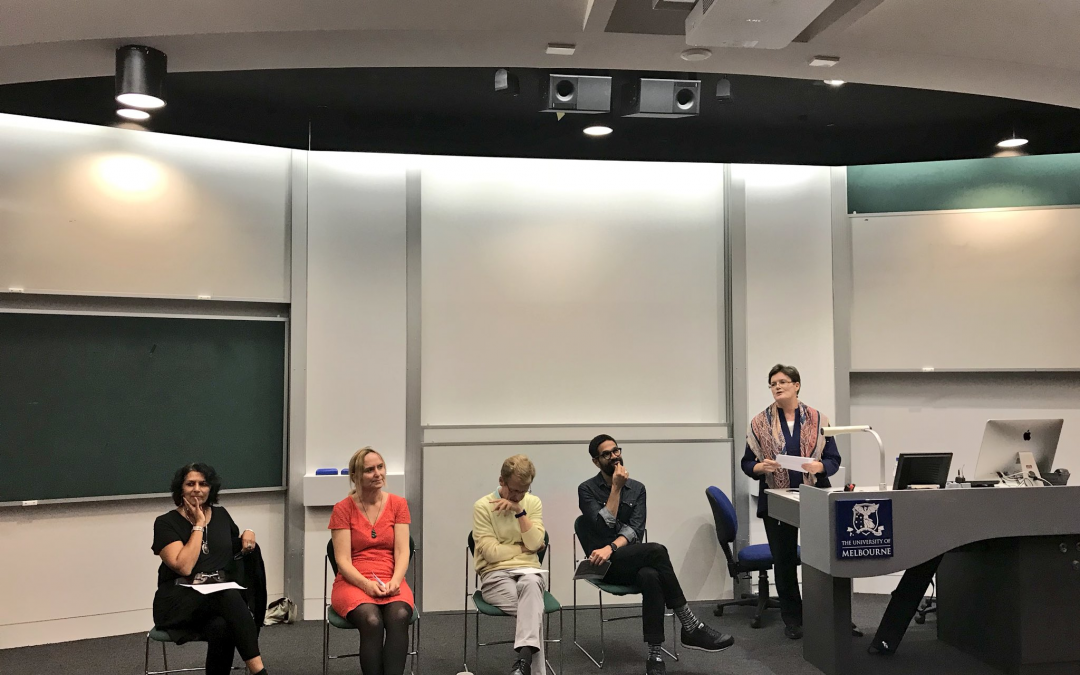
Addressing global inequalities: new ideas for moving forward
Phuong Nguyen, Master of Development Studies, President of the Graduate Organisation of Development Students (GOODS) at the University of Melbourne, Australia
Are global inequalities growing or diminishing? With the rise of new global powers, are the dimensions of inequalities shifting across borders, becoming more complex than ever? As a development practitioner and a critical social scientist, have you yourself done anything that – even with good intentions – reinforced structural inequalities in society?
Over the three days of the New Geographies of Global Inequalities and Social Justice Conference at the University of Melbourne, I had the chance to engage with academics, activists and practitioners from around the world, whose brilliant ideas and scholarship have enlightened me in my quest to answer some of these questions. For me three themes emerged from the papers presented. read more…

Community Contracting: together, we build our future
Kani Ming Chu Lam
“We are homeless, but not hopeless.” said proudly the youth representative of National Slum Dwellers Federation of Uganda (NSDFU), Jinja region, on the first day we met during an introductory section with the federation members. This marked the beginning of an unforgettable and inspiring 10-day fieldwork in Uganda – a highlight of my one-year International Development master’s programme.
My pathway, Poverty, Inequality and Development, spent 8 days in Jinja, the second largest region in Uganda, and worked mainly with NSDFU-Jinja and its supporting national NGO, ACTogether. With their kind assistance, we carried out research on participation and empowerment in slum upgrading, focusing on four key strands of NSDFU’s work: enumeration and profiling, savings groups, projects and livelihoods. read more…
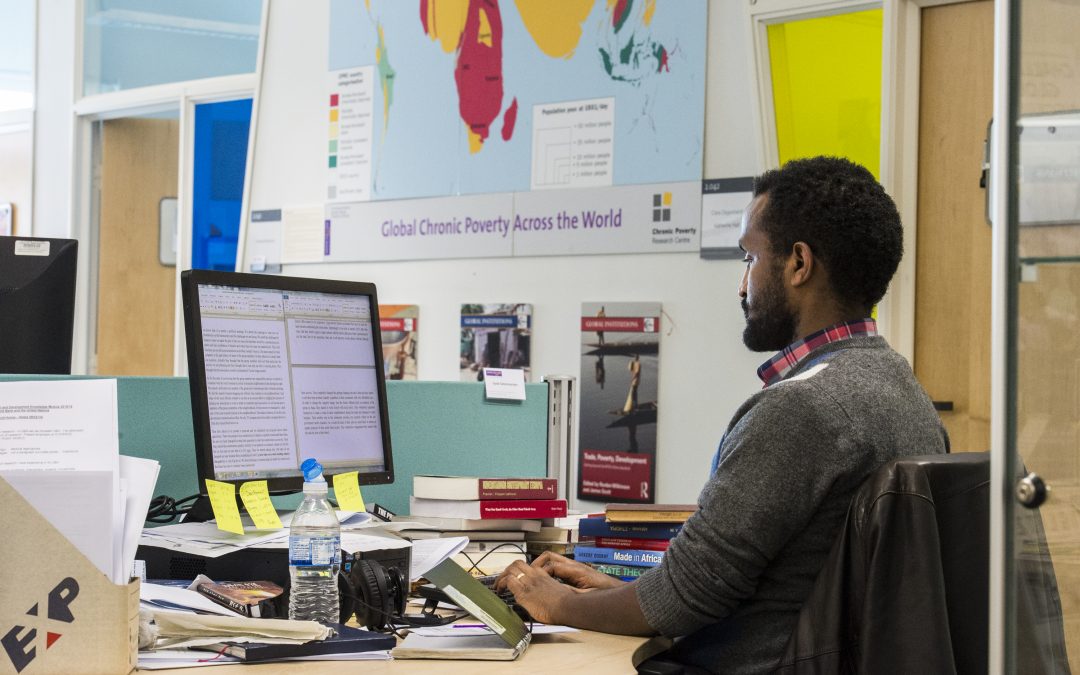
Letter to a prospective PhD student
I write in anticipation of your imminent email asking me to be your PhD supervisor. Firstly, I am flattered that you have chosen to approach me out of the blue, I look forward to hearing more about your proposed research. However, I receive many approaches each year as my institution – sensibly – asks that each applicant have agreed a supervisor prior to formally applying. Many of these approaches make similar mistakes that I would like you to avoid. So, before you do fatefully press send, I’d like to caution you first against making some common mistakes: read more…
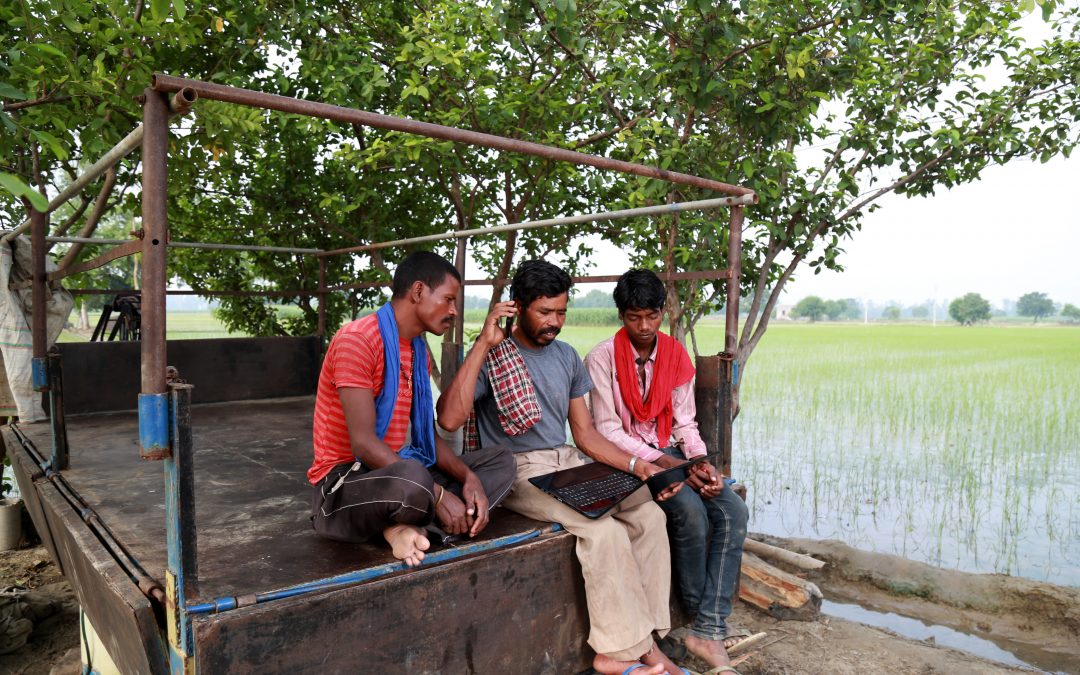
New book from Richard Duncombe: Digital Technology For Agricultural and Rural Development in the Global South
Global Development Institute researcher Dr Richard Duncombe is the editor of a new book sharing research and practice on current trends in digital technology for agricultural and rural development in the Global South.
The population of the Global South is growing rapidly. As populations grow so do requirements for food and nutrition. Improvements in agricultural productivity and sustainability are essential conditions for development to take place, in this respect. Some regions of the Global South have seen greater success than others in terms of agricultural growth. Low agricultural productivity in the Global South can be attributed to lack of knowledge of up-to-date technologies and practices, as well as issues such as climate change. read more…
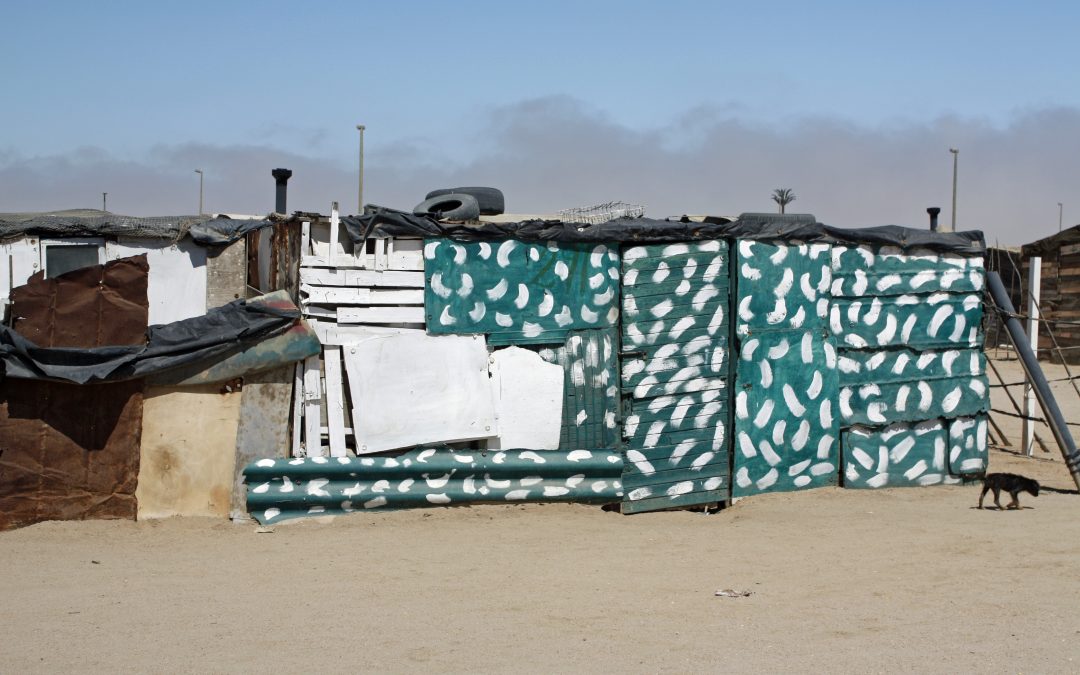
In Conversation: Beth Chitekwe-Biti & Ezana Haddis Weldeghebrael
Listen to Beth Chitekwe-Biti and Ezana Haddis Weldeghebrael discuss the recent political changes in Zimbabwe and what they mean for the urban poor.
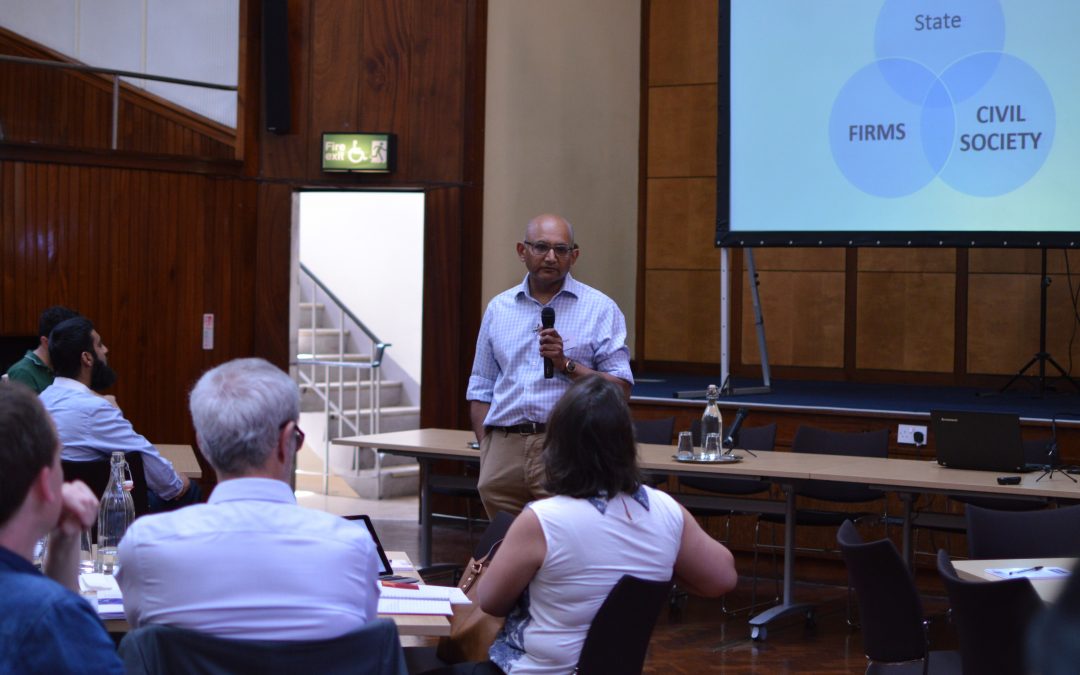
In conversation: Khalid Nadvi and Rory Horner
Global Development Institute academics, Khalid Nadvi and Rory Horner discuss the growing body of research which points to the ‘Rise of the South’ and the growth of South–South trade. Rory and Khalid consider the implications of the shifting dynamics of global trade and the greater prominence of Southern actors for the conceptualization of global value chains and global production networks.
Khalid Nadi and Rory Horner recently guest edited a special issue of Global Networks which looked at ‘global production networks and the new contours of development in the global south’.
